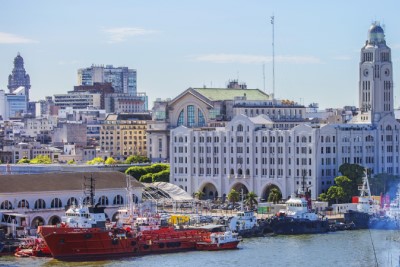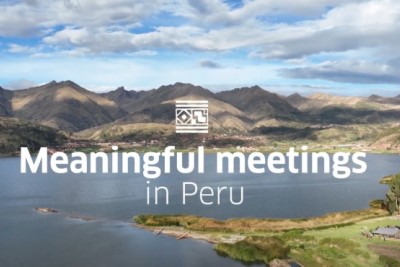LATAM NEWS
Disposable Plastics: Latin America Forges the Path to Sustainability
Single-use plastics, ubiquitous and practical, are proving to be a major environmental scourge, contributing significantly to the pollution of oceans and soils, and affecting global biodiversity. Their devastating impact on ecosystems and human health has catalysed a global movement to eliminate them. Against this backdrop, Latin America is emerging as a dynamic leader in this ecological battle, adopting innovative policies and sustainable practices that could serve as a model for other regions. From reducing plastic waste in aviation to adopting strict laws on single-use plastics in iconic tourist destinations, this article highlights how Latin American countries are taking bold steps to protect their natural landscapes. By transforming their policies and practices, they are paving the way for a more sustainable and exemplary tourism future.
Winds of Change in Aviation

Crédit : Air France
In the aviation sector, the battle against single-use plastics is gaining momentum. The International Air Transport Association (IATA) is at the forefront of this fight, and has just published a report detailing strategies for reducing the sector’s plastic footprint. The document highlights the importance of working together across the aviation value chain to adopt the principles of the circular economy. However, airlines face a number of challenges, including technical constraints and the lack of harmonised regulations. Despite this, significant progress is being observed, in fact as early as 2019 Qantas followed by Air France had taken significant measures by eliminating the use of single-use plastics(SUPP – Single Use Plastic Product), this initiative will subsequently be taken up by other airlines without however becoming widespread around the globe.
In Latin America, at the beginning of 2024, LATAM Airlines announced that it had eliminated more than 96% of its single-use plastics. For its part, Avianca ‘s sustainability report highlights the implementation of an action plan aimed at eliminating the use of SUPP in its aircraft and VIP lounges, without however announcing a deadline.
Our article: Air traffic, The number of passengers in Latin America is set to double by 2042
Inspiring actions in Latin America

Crédit : Kona Wind
Latin America is actively mobilising against plastic pollution, with government and citizen initiatives that demonstrate the urgency and possibility of change. Today, 27 of the 33 countries in the region have adopted national or local laws to reduce, ban or eliminate single-use plastics. Here’s how some countries are tackling the issue:
- Argentina: The country has had national directives in place since 2019 to manage the impact of plastics on the environment, banning in particular the production, import and use of certain plastics in cosmetics and personal hygiene products.
- Belize: With the ban on single-use plastic items (cutlery, bags, straws) and polystyrene, Belize is protecting its barrier reef, the second largest in the world, affirming its commitment to marine conservation.
- Brazil: Despite the absence of a national ban, significant local measures, such as those in Rio de Janeiro and São Paulo, are showing the way towards reducing single-use plastics.
- Chile: A pioneer in the region, Chile has not only banned plastic bags but also regulated the use of single-use plastics in food establishments, demonstrating its environmental leadership.
- Colombia: The National Plan for the Sustainable Management of Single-Use Plastics aims to make all single-use plastics reusable, recyclable or compostable by 2030. In addition, by 2022, the country has approved a bill to ban 14 types of plastic, including plastic bags, straws and food packaging.
- Costa Rica: Costa Rica’s National Marine Waste Plan 2021 – 2030 illustrates its commitment to reducing land-based waste reaching the sea, including plastics.
- Ecuador: By transforming the Galapagos Islands into a plastic-free archipelago in 2018, Ecuador is taking concrete steps to protect this unique ecosystem.
- Mexico: With bans and restrictions on single-use plastics in 31 out of 32 states, Mexico is a leader in the fight against plastic pollution. Mexico City has strengthened its commitment to eliminating plastic pollution by becoming the first megacity in the region to join the New Plastics Economy Global Commitment.
- Panama: Panama has not only banned plastic bags and disposable tableware, among other things, but has also launched a National Action Plan against Marine Waste 2022-2027, underlining its commitment to protecting its marine resources.
- Uruguay: Uruguay has launched the “Single-Use Plastic-Free Challenge“, promoting the reduction of plastic waste production in retail, tourism and commerce.
The fight against single-use plastics transcends borders. From Latin America to Asia, Europe and beyond, governments, businesses and citizens are joining forces to combat this persistent pollution, underlining a growing global awareness of the need for urgent action to preserve our environment. The example of airlines, in particular, demonstrates that sectors that have traditionally been plastic-intensive can evolve towards greener practices. This global dynamic demonstrates that, despite the complexity of the challenge, the transition to sustainable alternatives is not only possible, it is underway.
RECENT POSTS

Montevideo, New Headquarters of the Tourism Law Observatory for Latin America and the Caribbean
LATAM NEWS Montevideo, New Headquarters of the Tourism Law Observatory for Latin America and the CaribbeanMontevideo, the capital of Uruguay, has been designated as the headquarters of the Tourism Law Observatory for Latin America and the Caribbean, an initiative...

Guanacaste: An Escape to the Heart of Costa Rican Biodiversity
DESTINATIONS Guanacaste: An Escape to the Heart of Costa Rican Biodiversity Situated in the north-west of Costa Rica, the province of Guanacaste is a natural paradise that captivates visitors with its ecological diversity, heavenly beaches and deep-rooted cultural...

“Meaningful Meetings in Peru 2024”: A New Era for Meeting Tourism
LATAM NEWS “Meaningful Meetings in Peru 2024”: A New Era for Meeting Tourism Peru's Export and Tourism Promotion Agency (PROMPERÚ) recently launched its ‘Meaningful Meetings in Peru 2024’ campaign. This initiative aims to position Peru as a destination of...


